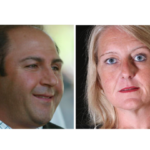Should We Help Those Who Are Attracted to Children?

Child sex offenders are regarded with great disdain by the general public, with many suggesting that we should ‘lock’em up and throw away the key’, or even castrate or execute them.
But when it comes to those who admit being attracted to children – but have not engaged in any illegal conduct – the issue becomes one of prevention rather than punishment.
Statistics indicate that between 3-5% of the adult population has a sexual attraction to children.
While the vast majority do not commit child sex offences, experts suggest that the risk of offending can be greatly reduced by early intervention.
Australian experts are looking to their German counterparts to help them understand the best way to assist those who admit they have a problem.
The German Approach
Since 2005, the German government has advocated a preventative approach for those with sexual desires towards children.
Dubbed “Prevention Project Dunklefeld”, the approach uses targeted advertising to encourage those who have an attraction towards children to receive treatment to overcome their desires.
The ads are shown across a variety of media formats including TV, posters and billboards, and aim to reach out to those who admit to having paedophilic desires.
They also play a secondary role in reducing stigma associated with paedophilic tendencies and educating the general public about the prevalence of such desires.
Interestingly, the project is aimed only at those who have not been reported to police – although some have admitted to abusing children.
Those who believe that they have a problem are encouraged to contact counsellors, psychologists and other professionals anonymously via email or phone.
They then undertake an assessment and evaluation, and can then participate in weekly group or individual therapy sessions, during which psychologists teach them how to ‘control their desires to prevent them from offending.’
Around a thousand people have signed-up for the initiative since it began, with the vast majority of them being men.
Those who participate often feel stigmatised and ashamed of their desires – and are grateful to have a support network.
Facilitators believe that between 80-85% of participants walk away reformed.
Could This Work in Australia?
While Prevention Project Dunklefeld has had great success in Germany, those behind it warn that it may not be as effective in countries such as Australia and the United Kingdom due to social attitudes towards paedophilia.
Here in Australia, paedophilic tendencies are viewed with enormous disgust, and those who harbour them with great disdain.
Those who admit such tendencies often experience hatred, revulsion, fear and apprehension.
There is a high level of scepticism towards those who express a desire to overcome their issues, with many believing that paedophiles ‘cannot be cured,’ and should therefore be subjected to social isolation, or worse.
There is also a failure within the Australian community to acknowledge the varying degrees of paedophilia, with many believing that all paedophiles must have committed an offence against a child at some point in time.
Others believe that paedophilia is a choice – and that all paedophiles are automatically evil.
This, however, is contrary to research that suggests there are varying ‘degrees’ of paedophilia – from those who regularly groom and abuse children, to those who refuse to succumb to their desires, and live their entire lives without acting inappropriately towards children.
Attitudes in other countries are vastly different – for instance, the German community appears to be much more supportive of those who genuinely want to rehabilitate themselves and address their problems.
Besides the difference in social attitudes, legal and professional obligations pose an obstacle to similar programs being rolled-out in Australia.
Psychologists are required to report a person to police where they believe a child is at risk – which may deter people from seeking help for fear that they could lose their children or even be criminally prosecuted.
These protocols can create a catch-22 situation: many professionals believe that preventative treatments for paedophiles are ‘desperately needed,’ but feel conflicted as they support the mandatory reporting scheme that is in place.
Prevention At-Odds with Australian Attitudes
While preventative programs have the support of some Australian professionals, the general public’s negative attitude towards those who harbour an attraction towards children could hinder any moves towards ‘helping’ such people to overcome their problem.
Most people in the wider community support a punitive approach, one that focuses of harsh punishments – particularly since advances in technology make it easier for paedophiles to target children online.
The government has responded by increasing the maximum for child sexual assault to life imprisonment.
But advocating a hardline approach can stigmatise those who truly wish to overcome their problems.
Social attitudes pose a barrier to the success of prevention programs locally – but as attitudes change, it is hoped that those with inappropriate urges will receive support to prevent them from following through with their urges and thereby destroying the lives of innocent children.
Receive all of our articles weekly
Author






